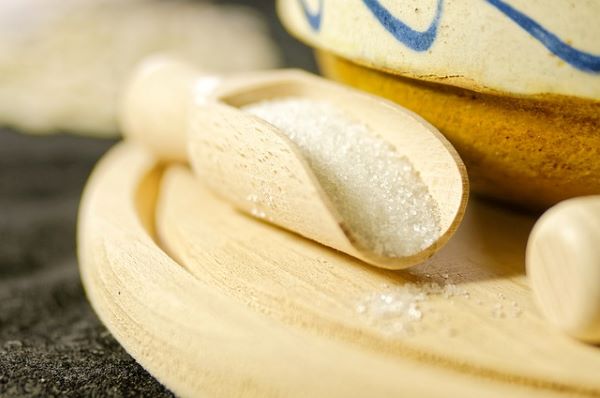Artificial sweeteners are everywhere. From your favorite zero-calorie sodas to those “healthy” protein bars, they’re marketed as the guilt-free alternative to sugar. But, have you ever stopped to wonder what these sugar substitutes are doing to your gut?
If you’re anything like me, you’ve probably thought, “It’s calorie-free, so it must be good for me!” But here’s the twist—artificial sweeteners may be zero-calorie, but they aren’t exactly neutral when it comes to your gut health.
Let’s dive into the fascinating (and slightly alarming) world of artificial sweeteners and how they interact with your gut bacteria.
Also, read: Gut Health and Athletic Performance: Is There a Connection?
What Are Artificial Sweeteners?
Before we get into the nitty-gritty, let’s define what artificial sweeteners are. These are chemically produced sugar substitutes designed to provide sweetness without the added calories. Common ones include:
- Aspartame (found in diet sodas and gum)
- Saccharin (think Sweet’N Low)
- Sucralose (aka Splenda)
- Acesulfame potassium (often found in sugar-free drinks)
They’re popular for weight loss, diabetes management, or simply cutting back on sugar. But the real question is: what do they do once they hit your gut? (Source)
How Artificial Sweeteners Affect Gut Bacteria
Your gut is home to trillions of bacteria that help with digestion, immunity, and overall health. When you consume artificial sweeteners, they don’t just pass through unnoticed—they can interact with and even alter your gut microbiome.
Here are some ways they might affect you:
1. Disrupting the Balance of Good and Bad Bacteria
A balanced gut microbiome is key to good health. However, studies have shown that artificial sweeteners can increase the growth of harmful bacteria while reducing beneficial strains like Bifidobacterium and Lactobacillus.
For example, a study published in Nature found that artificial sweeteners like saccharin and sucralose altered gut bacteria in mice, leading to glucose intolerance—a precursor to diabetes.
2. Potential Link to Metabolic Disorders
Here’s the ironic part: artificial sweeteners are often used to combat obesity and diabetes, but they may actually contribute to these issues. Altered gut bacteria can impact how your body processes glucose, potentially leading to weight gain or insulin resistance.
3. Digestive Distress
Ever had a sugar-free candy binge and found yourself, well, regretting it later? Artificial sweeteners, especially in high doses, can cause bloating, gas, and diarrhea. This happens because certain sweeteners ferment in the gut, creating an imbalance.
4. Inflammation
Some research suggests that artificial sweeteners may promote inflammation in the gut, which could lead to leaky gut syndrome. This is when the gut lining becomes permeable, allowing harmful substances to enter the bloodstream. (Source)
Not All Sweeteners Are Created Equal
It’s worth noting that not all artificial sweeteners have the same effects. For instance:
- Stevia and monk fruit are plant-based sweeteners and may have fewer negative impacts on gut health compared to chemical alternatives.
- Erythritol, a sugar alcohol, is generally well-tolerated but can cause digestive discomfort in high doses.
If you’re trying to cut sugar, it’s essential to choose sweeteners wisely and in moderation. (Source)
Practical Tips to Protect Your Gut
If you’re a fan of diet drinks or sugar-free snacks, don’t worry—there are ways to balance your love for sweetness with gut health.
1. Moderation is Key
Like most things in life, moderation is your best friend. An occasional sugar-free treat is unlikely to wreak havoc on your gut, but constant consumption could.
2. Focus on Whole Foods
Whenever possible, opt for naturally sweet options like fruits. These not only satisfy your sweet tooth but also provide fiber and nutrients that support gut health.
3. Support Your Gut with Probiotics
Adding probiotic-rich foods like yogurt, kefir, or fermented vegetables can help replenish good bacteria and counteract any potential damage from artificial sweeteners.
4. Read Labels Carefully
Sugar-free doesn’t always mean healthy. Look out for artificial sweeteners in processed foods and opt for products with minimal additives.
5. Experiment with Natural Sweeteners
If you’re determined to cut sugar, try natural alternatives like honey, maple syrup, or coconut sugar in small amounts.
FAQs About Artificial Sweeteners and Gut Health
Q: Are artificial sweeteners bad for everyone’s gut?
A: Not necessarily. Some people tolerate them well, while others may experience digestive discomfort or changes in their gut microbiome. It’s often a matter of individual sensitivity.
Q: Can artificial sweeteners help with weight loss?
A: They can reduce calorie intake temporarily, but their potential impact on gut health might counteract weight-loss efforts in the long term.
Q: Are natural sweeteners better for gut health?
A: Generally, yes. Natural sweeteners like honey or stevia have fewer reported negative effects on gut bacteria, but they should still be consumed in moderation.
Q: Should I completely avoid artificial sweeteners?
A: Not necessarily. Occasional use is unlikely to harm your gut, but excessive consumption may. Balance and variety are key.
A Day in the Life: Gut-Conscious Sweet Choices
Wondering how to satisfy your sweet tooth without compromising your gut health? Here’s a sample day:
- Morning: Sweeten your oatmeal with a drizzle of honey or a sprinkle of cinnamon.
- Afternoon Snack: Enjoy a fruit smoothie made with bananas, berries, and unsweetened almond milk.
- Dinner: Skip the sugary sauces and opt for a light vinaigrette or fresh herbs for flavor.
- Dessert: Indulge in a piece of dark chocolate or a bowl of fresh fruit for a naturally sweet treat.
Final Thoughts
Artificial sweeteners might seem like the perfect sugar substitute, but their impact on gut health is worth considering. While they can be helpful in moderation, overuse might lead to gut imbalances and other health concerns.
So, the next time you’re tempted to reach for that diet soda, pause and think about how it might affect your gut. Small changes, like choosing natural sweeteners or eating whole foods, can make a big difference in the long run.
Remember, your gut isn’t just about digestion—it’s the foundation of your overall health. Treat it well, and it’ll treat you well in return!





